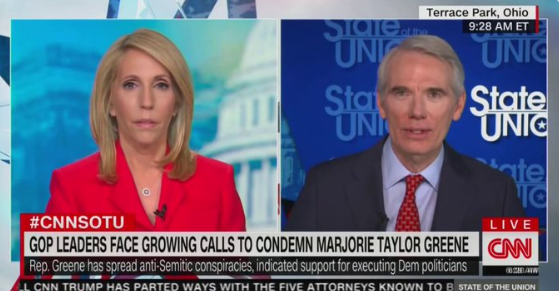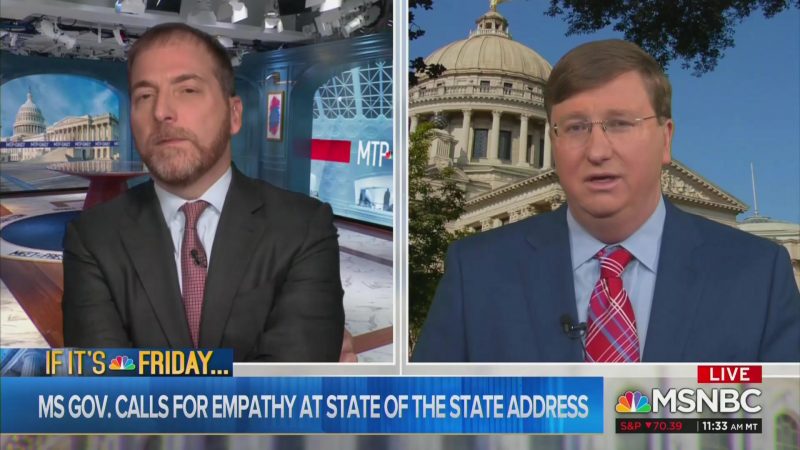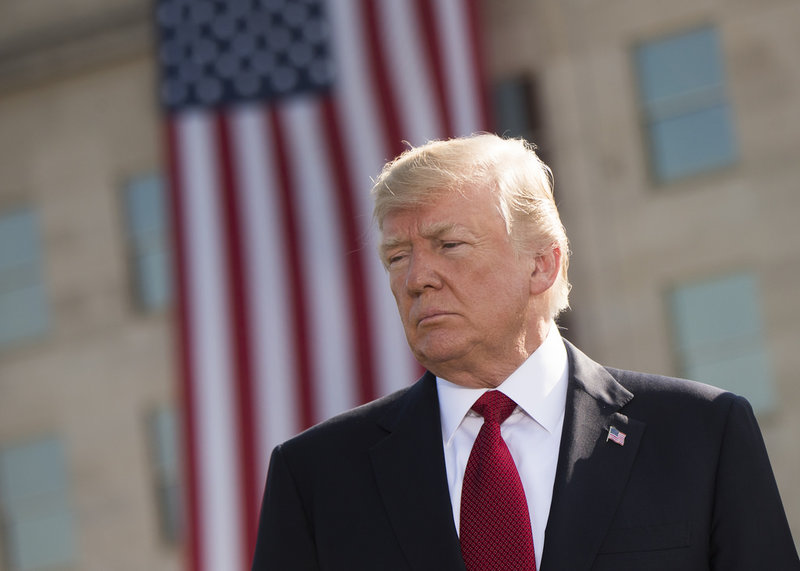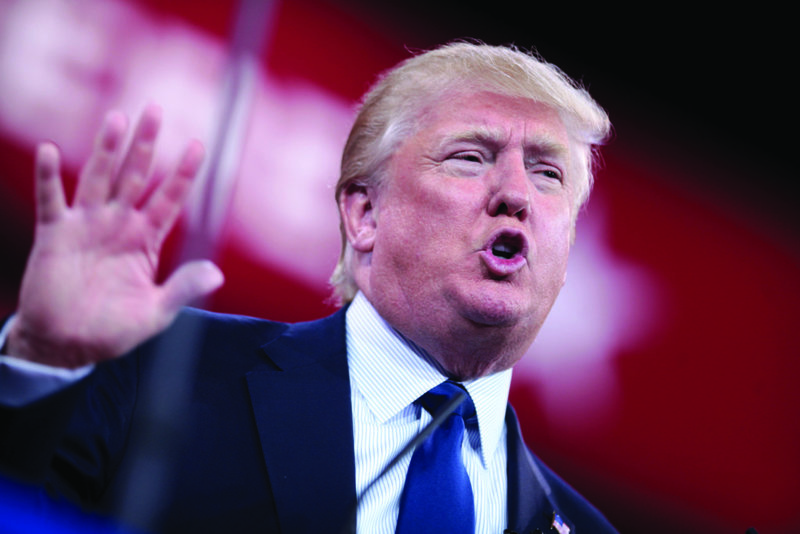Trump, Who Routinely Didn’t Read Early Warnings about Coronavirus, Insists His Response Was ‘Earlier than Anybody Thought’
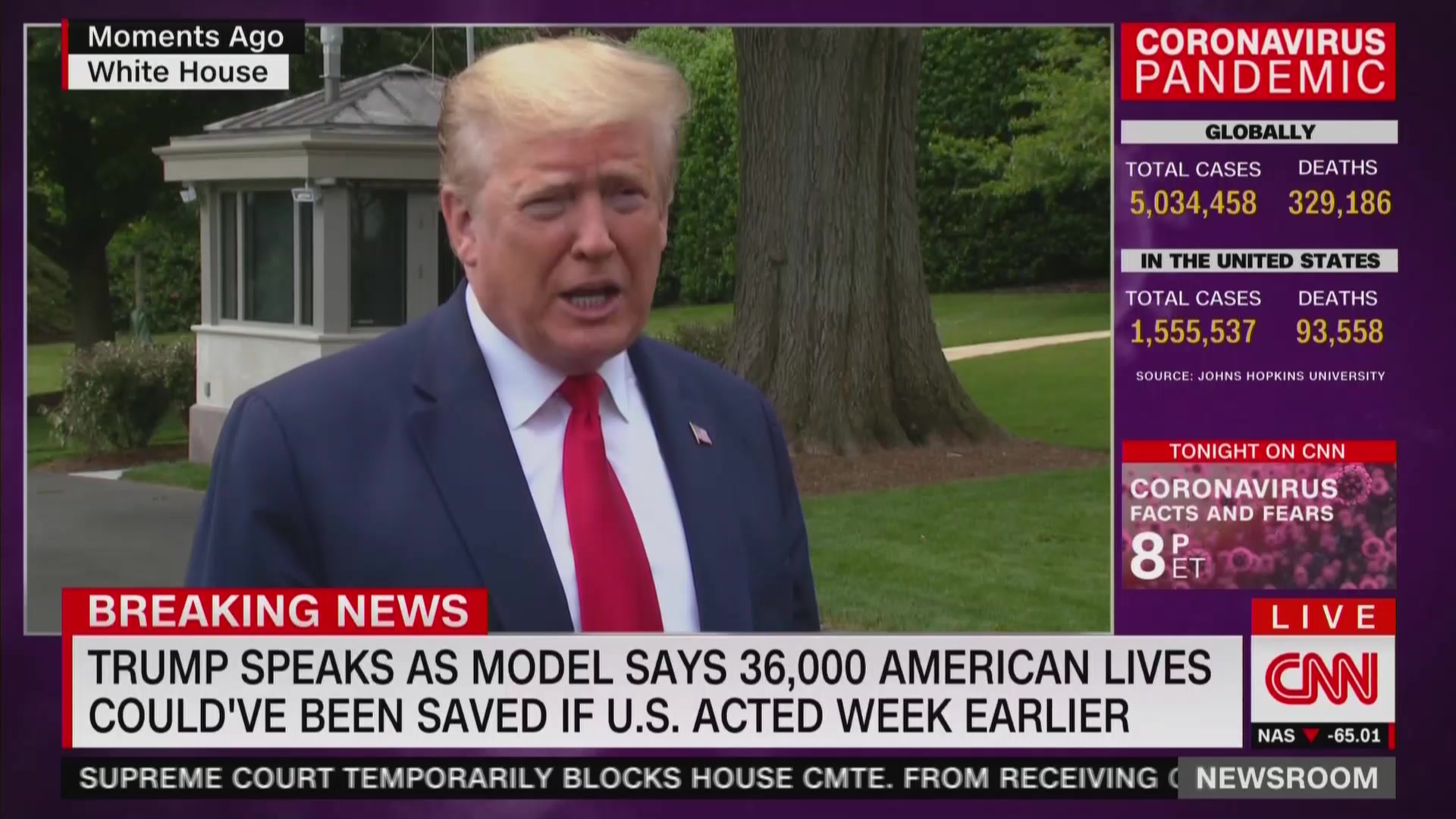
If social distancing measures were enacted one week earlier, a study from Columbia University found, the U.S. could have prevented approximately 36,000 deaths from the coronavirus.
Additionally, at least 700,000 infections could have been avoided, according to the study.
President Trump declared a national emergency on March 13, two days after the World Health Organization declared a global pandemic. On March 15, the Centers for Disease Control and Prevention warned against large gatherings for the next few months. Over the course of the next week, many schools, bars and restaurants began to close.
But if this chain of events had occurred even one week earlier, many thousands of lives would have been spared. The New York metropolitan area in particular would have seen at least 17,514 fewer deaths and 209,987 fewer cases.
When asked about this study on Thursday, President Donald Trump said, “I was so early, I was earlier than anybody thought.” Columbia University, he added, is “very liberal,” claiming that the study is a “political hit job.”
As reported by The Washington Post, the Trump administration was first notified of the coronavirus on January 3, but Trump spent the next several weeks downplaying it on Twitter and during public appearances. More information about its spread was included in the President’s Daily Brief in January in February, but Trump “routinely skips” reading the document, the Post notes. In that time, a Post investigation found, “from the Oval Office to the CDC, political and institutional failures cascaded through the system and opportunities to mitigate the pandemic were lost.”
Citing a persistent vulnerability to the virus, Columbia researchers warned about a resurgence in cases and deaths. They found that delays in re-implementing social distancing guidelines after a lull in cases would result in “a stronger rebound of infections and death.”
More than 93,000 Americans have died thus far from the coronavirus, according to data from Johns Hopkins University.
Watch the video above, via CNN.

